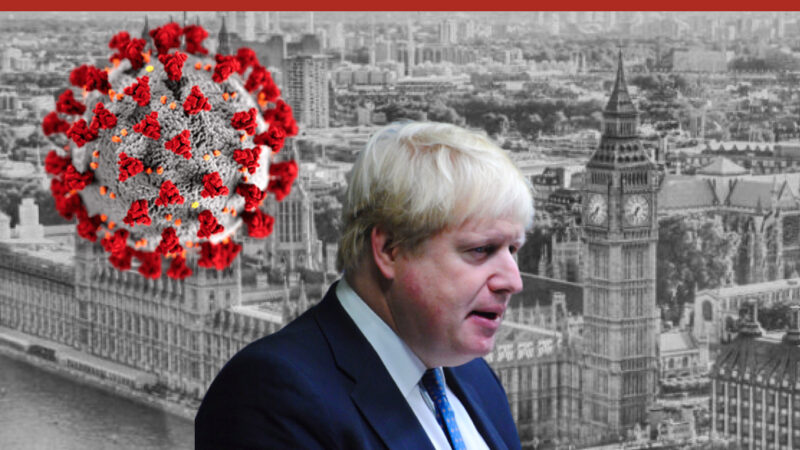
Across social media networks, Covid-19 mutual aid groups have sprung up. Many of these groups aim to bring local people together to support each other during isolation. Shopping can be delivered to vulnerable neighbours who might be too afraid to go to the stores themselves. Others might struggle with loneliness, and can find it helpful to have an online community to chat to. Sheffield Transformed, a local offshoot of The World Transformed festival, has started to share online resources for a “quarantine film club”, collecting free to watch movies and documentaries on political subjects. Momentum has repurposed its My Campaign Map – the app that directed volunteers to marginal seats for canvassing – to link up locals with mutual aid groups.
It is unsurprising that ordinary citizens have started to self-organise. In times of crisis, clear guidance and leadership is needed. And leadership is what is shamefully lacking. The government’s communication strategy, with its anonymous briefings and paywalled announcements, raised eyebrows. Anyone who has ever worked on a crisis communications brief knows how important it is to establish trust and clarity to control a situation. The government seems to be doing the opposite.
On the Labour Party side, the never-ending leadership contest is not helping. Whilst Jeremy Corbyn has intervened with a list of demands to push the government into action to protect precarious workers and vulnerable people, his authority is diminished. The leadership contenders were somewhat slow to step up to the challenge and make demands themselves. Perhaps this was because nobody wants to step on anyone’s toes or appear “politically motivated” when a public health emergency is supposed to bring leaders together to act.
But, of course, it is not true that the Covid-19 pandemic is an apolitical crisis. The public’s concerns over what is happening to them and their loved ones goes beyond the government’s dodgy communication strategy. Confidence in the ability of the NHS to cope with a sudden influx of seriously ill people has been eroded by years of cuts. We have seen services crumble in our local communities way before the first Covid-19 patients were diagnosed. Comparisons between availability of ICU beds and ventilators in the UK and other countries show that it doesn’t have to be this way. There is no escaping the fact that the under-investment in health infrastructure was a political choice made by subsequent British governments. This mistake is not easily corrected in the middle of a pandemic.
Left-wing activists are right to combine mobilisation for community support with the articulation of political demands, such as higher statutory sick pay and rent relief. We should all step up where we can to care for one another, but attention also should be on the conditions of the political economy. Covid-19 has raised consciousness because more people have suddenly found themselves vulnerable. For many others, however, the current crisis simply amplifies what has been their reality all along: workers on zero-hour contracts cannot take time off sick – with any illness. Those with pre-existing health conditions are shut out of education, workplaces and social activities because society does not accommodate them. This is set to remain a reality when the Covid-19 crisis passes – unless we mobilise for permanent change.
Crisis will show that the question of resistance against a reactionary government with a firm grip on the institutions of the state is best answered by extra-parliamentary mobilisation. This must also extend to a defence of our civil liberties. Briefings over the weekend suggested that the government would rush through a bill enabling the police and immigration officers to detain virus victims and stop any vehicle. These laws could be in place for up to two years, according to reports.
Although it might appear like a secondary concern right now, our movement has to hold the powerful to account on these moves. As it stands, powers to search and detain people disproportionally target migrants and people of colour. There is no doubt in my mind that a government that sees it as a key goal to increase deportations and restrict migrants rights will use any opportunity to further this agenda. If a way to deprive more migrants and people of colour of their citizens’ rights can be pushed through the back door because of the virus, they will take that chance.
Perhaps parliament, once again, is not the avenue for Labour members to focus on. The government still has its majority. The legislation to make way for these measures will be rushed through with limited scrutiny. There even is a chance that parliament will shut down completely over the coming weeks. Of course, concern for the health of staff is completely valid. But we cannot seek comfort in the belief that the government will use its emergency powers only for the good of society.
Gradually, further restrictions will be introduced to our lives. As we adjust to this new reality, we must remain vigilant. We have to look out for each other. And that also means to never stop questioning what those in charge will do with their power.



More from LabourList
Exclusive: Poll shows Starmer more trusted than PM on Middle East crisis
Revealed: Poll shows 1 in 4 Tory voters says Rayner faces ‘smear campaign’
‘Ignore the noise – the soft left is alive and well in Open Labour and beyond’